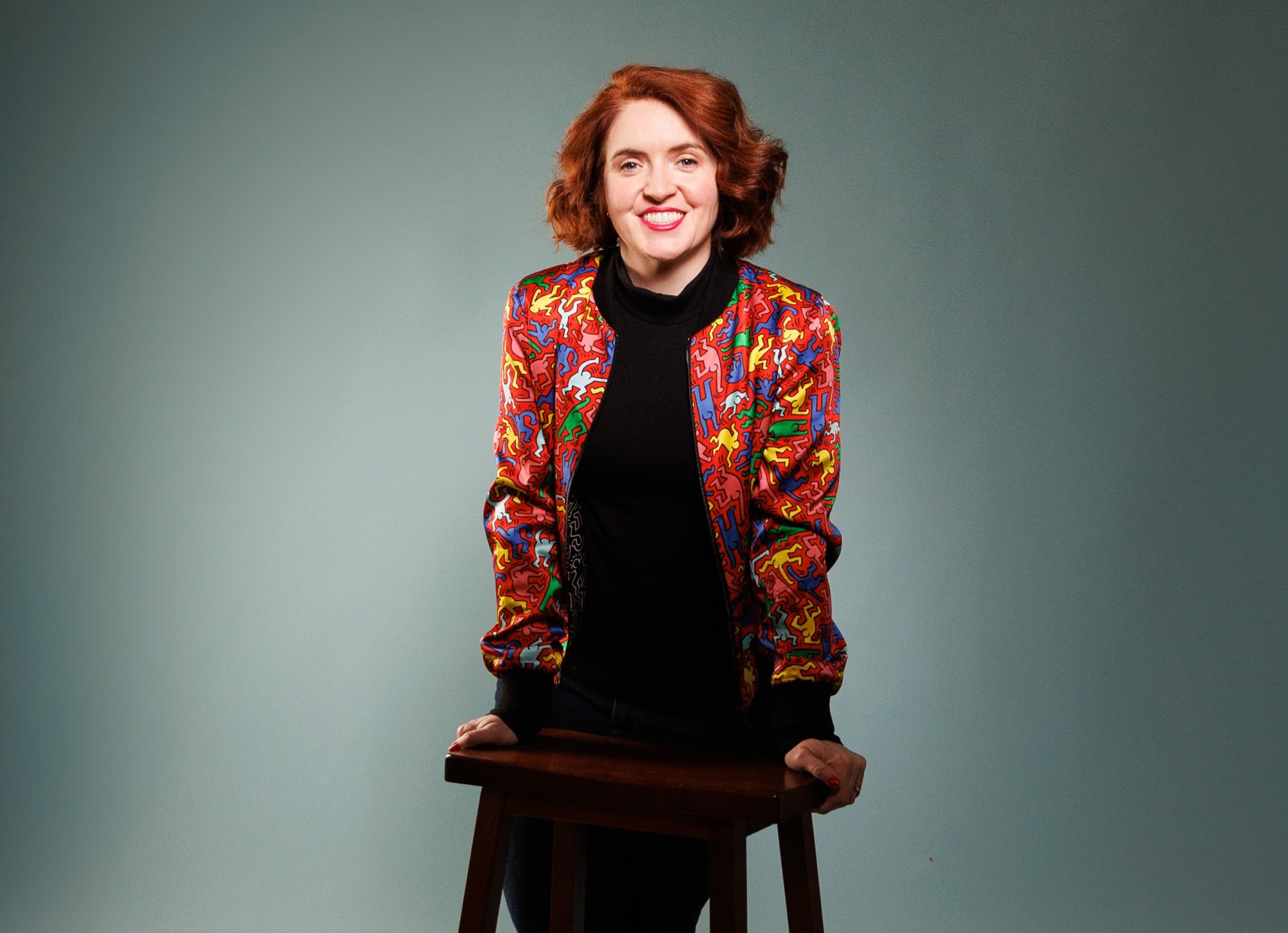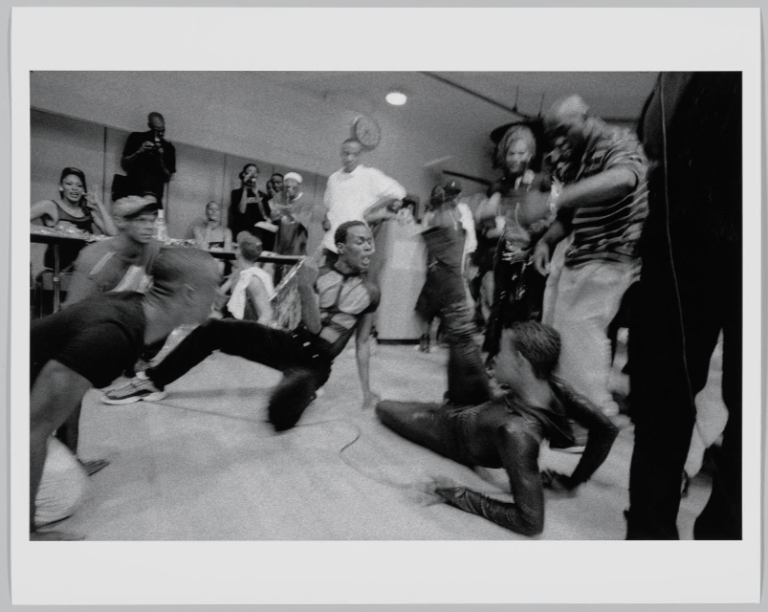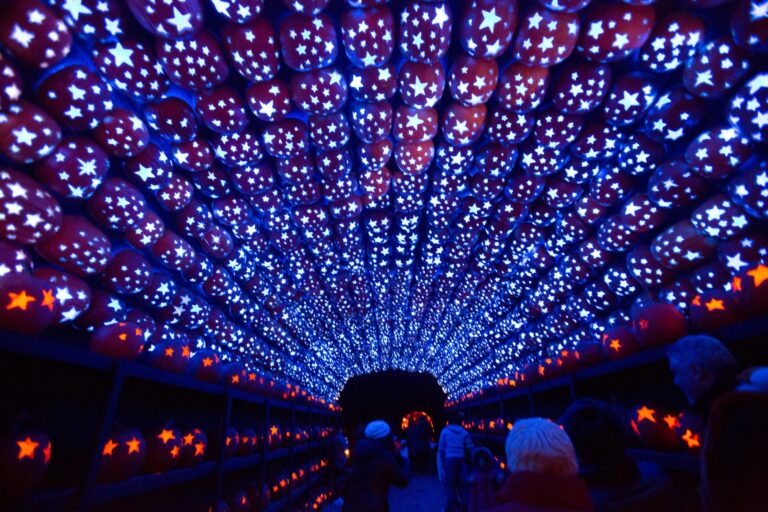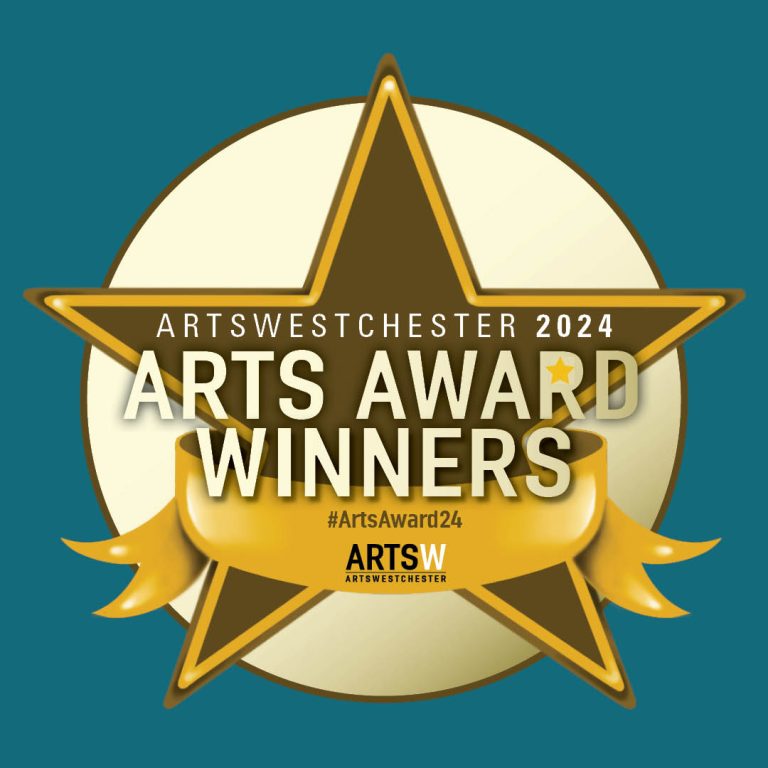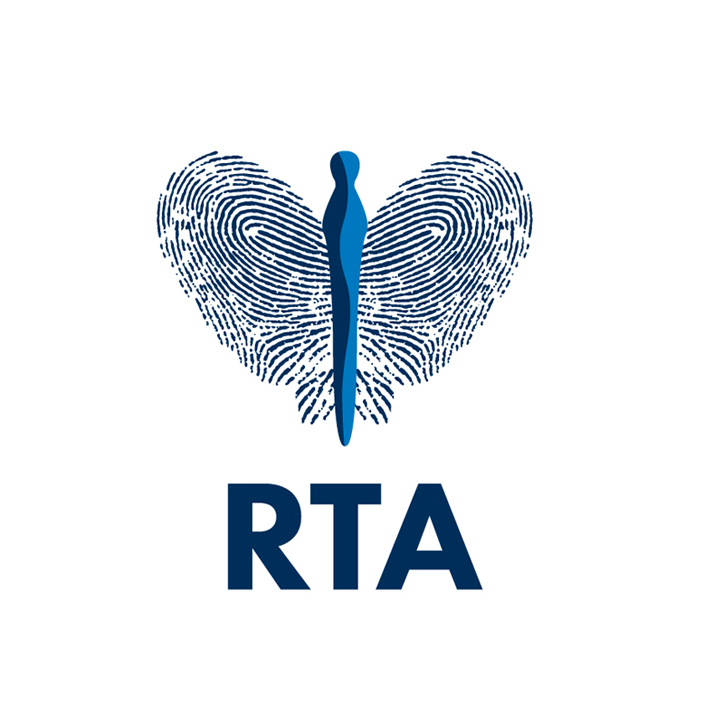Meet Kathleen Reckling: ArtsWestchester’s New CEO
ArtsNews Editor Mary Alice Franklin sat down with ArtsWestchester’s incoming CEO, Kathleen Reckling, to discuss her vision for the organization’s future. Reckling will assume the position on July 1 after working at ArtsWestchester for 13 years, more recently as the organization’s Chief Operations Officer.
MAF: The Surgeon General recently called isolation a “public health threat” and called for social connection as its solution. The pandemic and its resulting isolation reminded many that the arts have the power to bring people together. How does ArtsWestchester intend to increase access to the arts for all Westchester residents?
KR: The arts really do bring people together, whether it’s through sharing a mixtape with your best friend (remember those?), or marveling with your aunt at the quick footwork of a ballet dancer as they move across the stage. ArtsWestchester and many of our affiliates are actively thinking about how to get the arts to people and get people back to the arts so they can have these moments of connection with themselves or with others again.
Recognizing that many people are still uncomfortable at indoor venues, we’ve seen increased outdoor programming, including many of the events in our own Westchester Roots concert series. The Emelin Theatre is working with the Village of Mamaroneck Arts Council on a summer series, Concerts in the Park. There’s the Summer Breeze concert series in Mount Vernon, and Jazz Forum Arts is presenting superb concerts on the Dobbs Ferry and Tarrytown waterfronts. Yonkers Arts Weekend was a thrill, with free arts programs across the city. ArtsWestchester’s Arts Mobile has hit the road this season, taking hands-on art-making to the places where people live and gather. We’re also proud to fund programs like the Port Chester Arts Festival and the Jacob Burns Film Center’s Senior Afternoon Cinema programs, which seek to expand arts experiences to audiences who may have less access or different needs. ArtsWestchester also aggregates Westchester’s Juneteenth celebrations into a central calendar, which you can access on our website.
The list goes on, and on… ArtsWestchester will strive to increase access to the arts through our own programming, yes, but also by continuing to support the work of the region’s many arts organizations and artists through our grantmaking, advocacy, coaching and marketing.
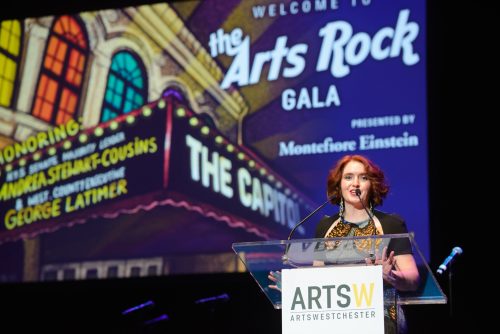
MAF: You’ve been an active member of ArtsWestchester’s team for over a decade. Under your leadership, what do you envision for ArtsWestchester’s programming and its role in the community?
KR: I’m extremely proud of what our Public Programs team has done together to expand services, and develop programs that respond to and reflect Westchester’s diverse communities. I’m excited that Aaron Paige, Adam Chau, and Jessy Mendez will continue to lead the organization in this work.
Our most successful programs are founded on collaborations with other service organizations, community groups, or other cultural organizations. This summer, we’re partnering with the African American Men of Westchester to host Discover Greatness: An Illustrated History of the Negro Leagues, an exhibition on loan from the Negro League Baseball Museum in Kansas City, MO. Last year, we collaborated with the Katonah Museum of Art to co-present a concert in conjunction with their exhibition of Syrian textiles. For over 35 years, we’ve worked with the Westchester County Department of Community Mental Health to provide artist residencies in health care facilities across Westchester to present an exhibition of clients’ artwork.
These are true collaborations that allow us to leverage our space and/or our expertise to support the missions of organizations that serve a wide range of community needs. Looking to our future, this is where I see our Public Programs team continuing to focus – on developing impactful partnerships across sectors.
MAF: With your solid background in art history and wealth of experience with public art and curating exhibitions, how do you see public art evolving in the coming years?
KR: Public Art is a proven tool for shaping more livable, inclusive and resilient communities. Public art breaks down barriers and offers moments of joy in our built environment. And with all the development taking place across Westchester, people are catching on to its transformative power. I seem to get a call almost daily from a municipal leader or private developer seeking advice on how they can incorporate the arts into their communities. Many come to the conversation thinking their only options are permanent murals or sculptures. But really the opportunities are far more varied. Wayfinding, functional objects like bus shelters, benches or bike racks, pedestrian zones or crosswalks – these are just some possibilities for creative interventions. And public art doesn’t have to be forever. Temporary works can be incredibly transformative, like ArtsWestchester’s own Metropolis Sunrise, a monumental textile sculpture created by Amanda Browder for the facade of our building with the help of 1,000 volunteers. ArtsWestchester is here as a resource to help match the right type of project with a site.
Six municipalities in Westchester and Rockland have received $10M Downtown Revitalization Initiative Grants from New York State, with our hometown of White Plains as the most recent recipient. Each one of these grantees embraced public art as a core component of their visions for the downtown. I’m thrilled to be on the White Plains DRI Local Planning Committee, working alongside residents and other local leaders to imagine what’s possible for the arts in our downtown.
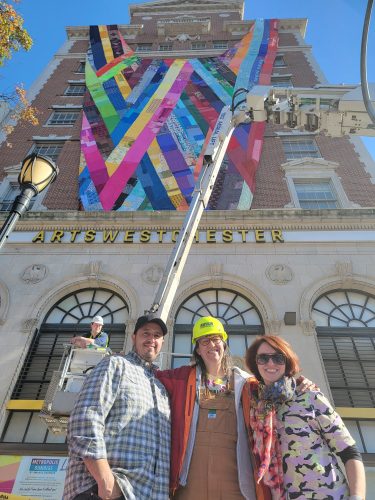
MAF: Tell us 3 things we don’t know about you.
KR: My first paycheck was as a “ringer” in a pit orchestra for an Ossining High School production of Sweeney Todd.
I was 12 and I received $90 for the three nights of performances and two rehearsals. It was thrilling to know I could be paid to be an artist. I am an only child, and as a kid I was pretty shy. When I was seven, I started playing violin. Being a part of various youth orchestras in Westchester gave me a community to belong to and something that made me unique. I was part of ensembles at the Music Conservatory of Westchester, performed at Performing Arts Center at Purchase College, and played with an accompanist from Hoff-Barthelson Music School. My most memorable experience was performing at Carnegie Hall as first chair of the Greater Westchester Youth Symphony Orchestra. Talk about an empowering experience! Here I was performing on a stage reserved for the greatest musicians of a generation. It really made me believe anything was possible!
I am a (semi-retired) competitive fencer.
Fencing has been a big part of my life for nearly 25 years. I had a fulfilling competitive career, fencing at World Cup tournaments across Europe and North America, and captaining the Columbia team to an Ivy-League Championship title and third-place finish at the NCAA’s Division 1 National Championships. My mother and I co-coached the Ardsley Varsity Fencing Team together from 2003-2021, which is where I began fencing – with her as my first coach. The women’s team was undefeated for 10 consecutive years with us at the helm! I am always running into a former student, or parent of a student. Also, I’m Board President of Fencers Club, the oldest school in North America dedicated to the sport – we’re proud to have four athletes headed to Paris this summer as part of the U.S. Olympic Team. I will be cheering them on from home!
I love dogs!
Dogs know I love them, and as soon we make eye contact, they come right over to me for an ear scratch. I’ve always had at least one terrier in my life. Now I have a rescue terrier mix named Kattie, who is deaf and collects socks, and an energetic Airedale named Julie who collects sticks. Since I can’t bring them to work with me, I have a kitschy renaissance-style portrait of them in my office, a gift from a friend.
MAF: Studies show that the arts significantly impact Westchester’s economic development in a positive way – having generated $182.3 million in economic activity during 2022. Can you speak to how that elevates the future of Westchester County and its quality of life for residents and visitors?
KR: Certainly, the arts and creative industries have a measurable impact on Westchester’s economy. Our recent Economic Impact Study, conducted in collaboration with Americans for the Arts, only reaffirmed that the arts are good for business, with audiences spending an average of $27 per person, for local goods and services (think hotel rooms, dinners and childcare) per each arts event they attend.
The arts are also job engines. A 2023 study by the Center for an Urban Future found that employment in the arts and culture sector in our region grew 47.7% between 2009 and 2019. Arts-related tourism also boomed during this time, growing 67%. But beyond the dollars and cents generated by the arts, the arts make Westchester a place people want to be. Artists and arts workers are moving into the county, joining longtime creative residents in continuing to shape vibrant communities in which arts experiences are bubbling up in every hamlet, village and municipality. Many community mainstays, like the Rye Arts Center, are looking to expand. At the same time, well-established entities like MorDance are moving from NYC into Westchester, and grassroots “startups” like New Era Creative Space in Peekskill are having a profound impact on their hometowns.
These trends are important because the arts foster a “pride in place” while also building more livable communities. And if you love data like I do, we have the numbers to prove that Westchester residents value having the arts in their own backyard: 78% of arts and culture event-goers in Westchester said that the venue they attended is an important pillar within their community, and 87% felt it important that future generations also be able to have that cultural experience.
MAF: What is your soundtrack while you work?
KR: Heading to the office, I listen to a mix of blues and alt-rock, like The Black Keys, Beck, Hozier, and St. Vincent, with a healthy dose of Beyonce blended in. I can’t help singing along to lyrics, so when it’s time to focus, I tend to pick an instrumental soundtrack (besides, no one in the office should have to experience my singing!). My default work playlist is mostly early jazz and classical, including many names who have graced various stages across Westchester, like Samara Joy, Wynton Marsalis, Pink Martini, Béla Fleck and Yo-Yo Ma.
Photo Credit: Stefan Radtke & Doug Abdelnour.

